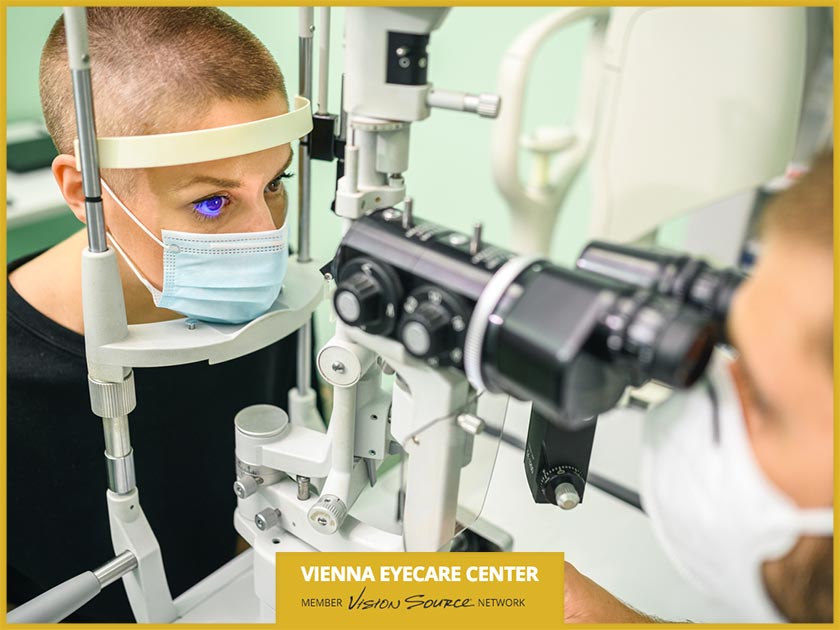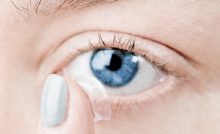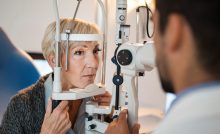What to Expect in a Dilated Eye Exam


Dilated eye exams allow your optometrist to detect possible vision problems and eye complications in their earliest stages, paving the way for more effective treatment. In this post, we walk you through what to expect during a dilated eye exam.


What Is a Dilated Eye Exam?
The vision to the back of the eye is narrow when the pupil is not dilated. This makes it difficult for your eye doctor to closely evaluate your retina and optic nerve. For a better view and a more accurate assessment, the pupil must be dilated, which is achieved through the use of eye drops.
Eye dilation involves using eye drops to widen the pupil allowing in more light, which gives the eye doctor a better view of the back of your eye. Through this process, the doctor can diagnose common diseases and conditions such as diabetes, glaucoma, cataracts, age-related macular degeneration and even high blood pressure.
Is It Necessary for You?
When determining whether a dilated eye exam is necessary, your eye doctor will consider the following:
- Your age. Many eye conditions are age-related, which is why dilated eye exams are often recommended for seniors, even if your current eyeglasses prescription is still working.
- Your ethnic background. Some ethnicities are at a higher risk for certain eye conditions, such as glaucoma. Your doctor will discuss your risk profile with you when determining how often you should undergo a dilated eye exam.
- Your health. Ailments like diabetes can be a potential factor for future eye illnesses.
If you’re from Fairfax, VA, and in need of an eye doctor, contact Vienna Eyecare Center via (571) 520-4232 to schedule an appointment or to request additional information about our services. We look forward to hearing from you.
Recent Posts
What Is the Optometrist’s Role in Glaucoma Co-Management?
Glaucoma is a leading cause of irreversible vision loss worldwide, known insidiously as the "silent…
Who Is the Ideal Candidate for Ortho-K?
For many individuals grappling with the inconvenience of glasses or the discomfort of contact lenses,…
Love Your New Glasses? Here’s How to Make Them Last Longer
Opting for a new pair of glasses not only marks an investment in your vision…
The Link Between Neck Pain and Your Vision
Neck pain is a common ailment that affects many individuals, causing discomfort and restricting daily…
Preparing for Your Eye Exam: Tips for Accurate Results
An eye exam is an essential aspect of maintaining optimal eyesight and overall eye health.…
How Stress and Your Mental Well-Being Can Impact Vision
In the bustling and picturesque city of Vienna, VA, Vienna Eyecare Center stands as a…







